Public event #BeTheChange: “The digitalization of justice: between achievements and challenges”
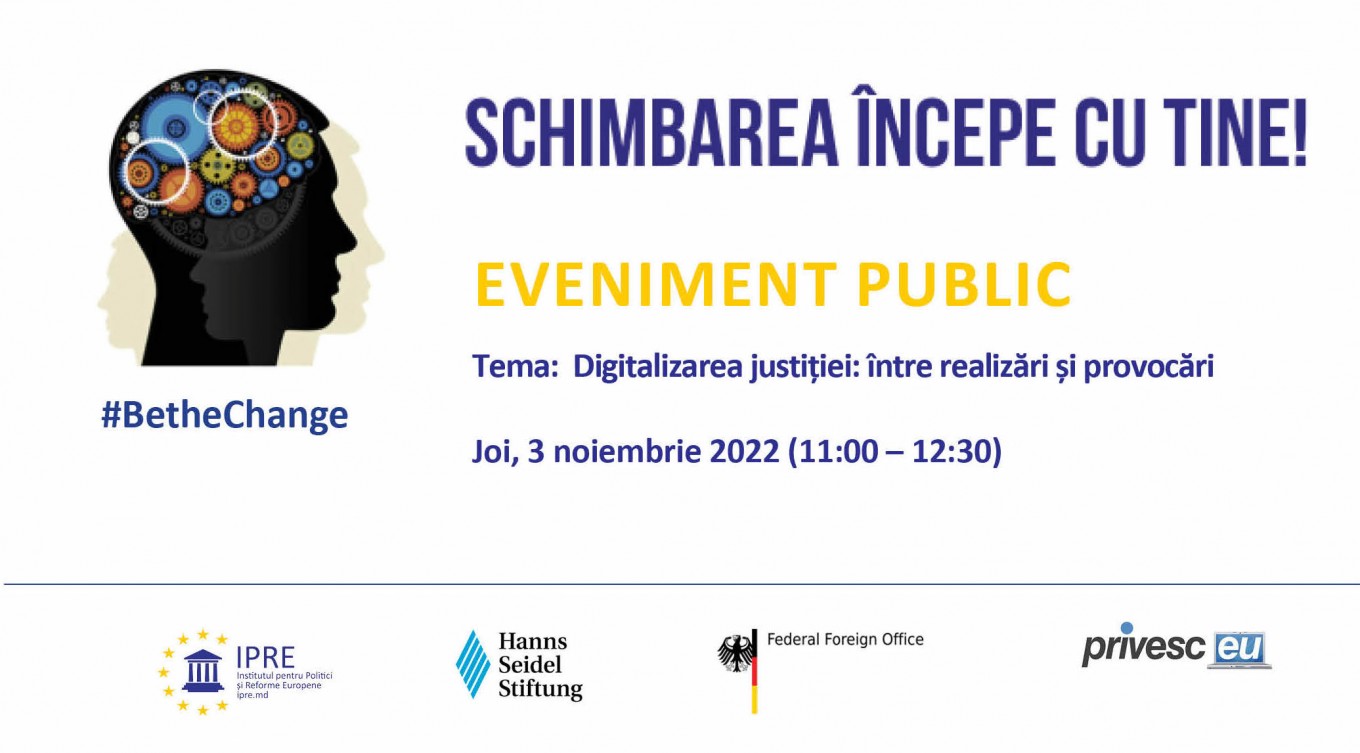
The Institute for European Policies and Reforms (IPRE), with the support of the Hanns Seidel Foundation of the Republic of Moldova and in partnership with the Privesc.Eu, organized on Thursday, November 4, 2022, the sixth event of this year within the initiative “#BeTheChange: Change starts with you!”, dedicated to the digitization process of the justice field.
The guests at the event, which was moderated by Andrei Nasu, research assistant of the #BetheChange program within IPRE, talked about the digitization process of the justice field in the Republic of Moldova, the potential risks and arrears in the process of implementing digital solutions in the act of achieving justice, as well as about the E-Dosar system.
Below, we propose some of the main speeches of the speakers.
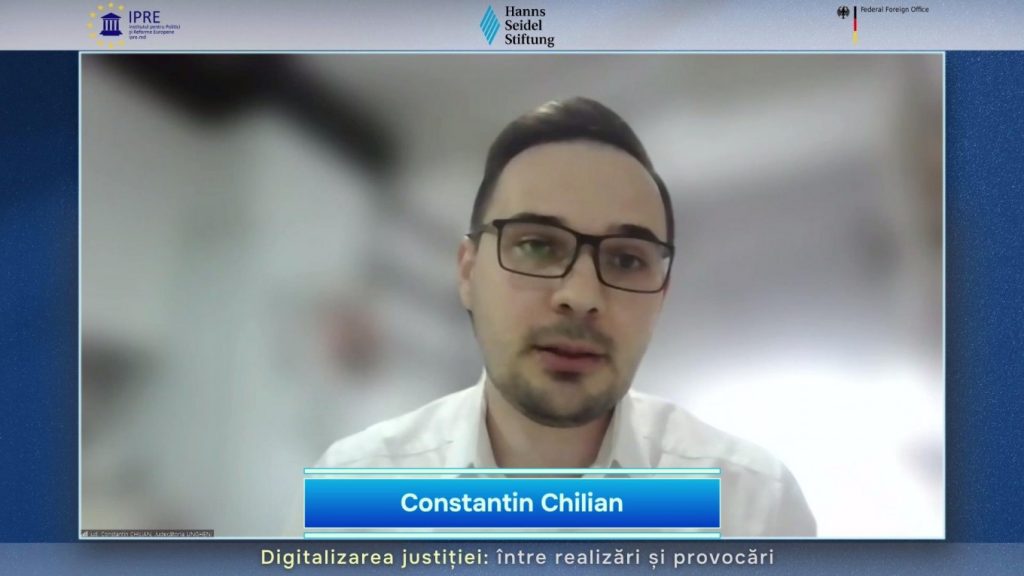
Constantin Chilean, judge of the Ungheni Court: “The main challenges faced by the judicial system in the process of digitization of its activity are: the human component and the technical component. If the technical component is a second one, in the sense that most courts have sufficient digital technical means and able to cope with the existing requirements, then the human component is a very important one and which plays a primary role in the process of digitization of justice. Namely, the high staff flow within the courts plays a harmful role in the process of digitization of justice, or a lot of time and effort is wasted in the continuous training of newly hired staff. At the same time, the law must be interpreted in an evolutionary manner, in the sense of using all possible legal means in order to ensure an efficient examination of the court case. Regarding the e-File information system, this is a necessity, the importance of which has been emphasized especially during the pandemic restrictions in connection with the COVID-19 infection. Another important aspect that slows down the process of digitization of justice would be the over-loading of the courts and the restricted and rigid deadlines for carrying out procedural acts, which certainly prevents the workers within the judicial system from carrying out all the actions necessary to ensure the digitalization of the process. Another important component in the digitalization process is the adequate financing of the judicial system, not only in the sense of procuring the necessary digital devices and software, but also in order to adequately remunerate the human staff, in order to keep the workers already trained in the system”.
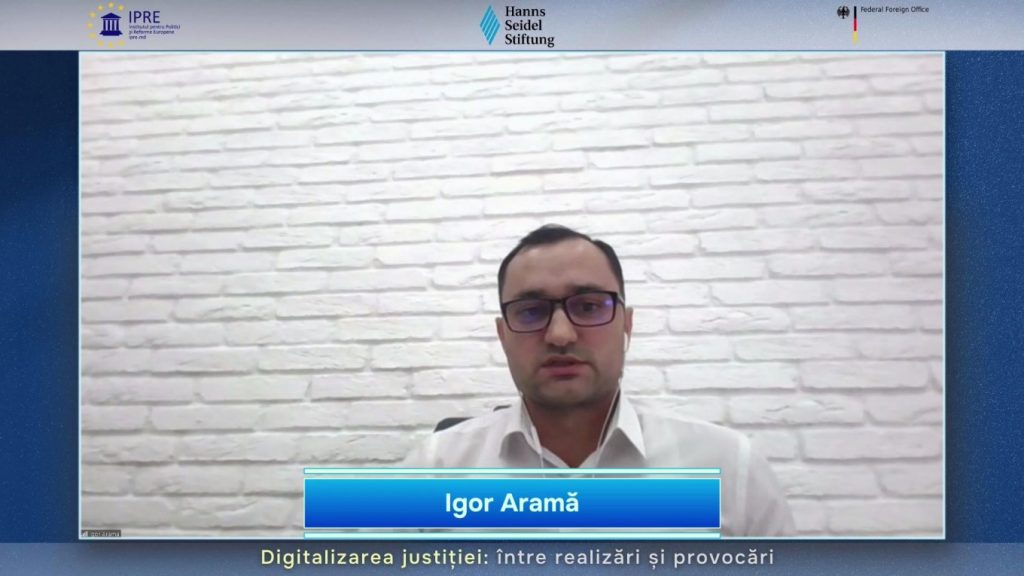
Igor Arama, head of the Data Exchange and Interoperability Service within the e-Government Agency: “Through its program of activity, the Government has assumed the digitization process of the country. The need for the wide implementation of technological solutions in the public domain has been talked about for a very long time, but the momentum in this regard has been taken in the last two years, a fact proved by the fact that the position of deputy prime minister for digitization was established at government level, but also by the fact that several actors are involved together with the e-Government Agency in the process of digitization of the country. A good success in this regard is the alignment of the Agency’s agenda with the agenda of the Ministry of Justice. Due to this, there is a decreasing reluctance of justice actors to digital tools offered by the state, such as electronic identification, or electronic signature. Another success of the state in the process of digitization of justice is the fact that at the moment several automated electronic systems are interconnected, which considerably simplifies and accelerates the exchange and obtaining of data and information. The integration of the M-Pay payment system also presents an important success in the process of digitization of justice, or, it allows the payment of practically all services related to the judicial process”.
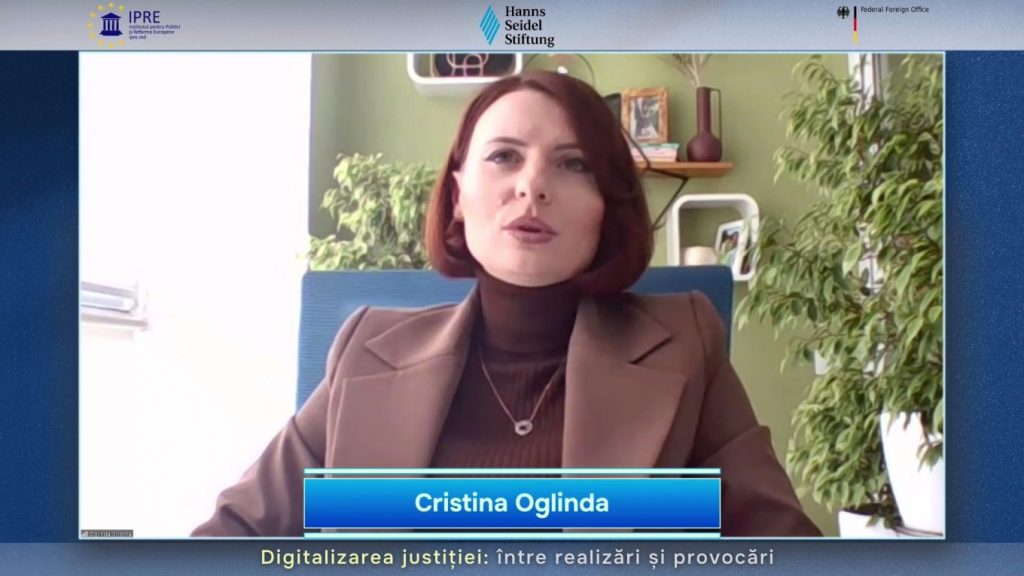
Cristina Oglinda, lawyer: “The e-File automated information system is an urgent necessity that will ensure the efficiency and will increase the quality of the judicial act. It is gratifying the announcement of the Secretary of State of the Ministry of Justice that by the end of 2023 this information system will be put into large-scale operation. With regard to the activity of the Union of Lawyers of Moldova, it is worth mentioning that in September this year, the Ordinary General Assembly of lawyers from Chisinau was held for the election of the dean and vice-dean of the Bar, which was organized in online format, and the elections themselves had electronic voting, regardless of the location of the voters. This fact is extremely beneficial and is conclusive proof that the digitalization process of the field of justice is in the process of development. In the same vein, it is important to take into account the process of transition from the classic way of conducting trials to the digital one, or, at the head of the table, always has to be the citizen. Thus, any reform carried out must come to the benefit and help of the common man, and in no case must it worsen, or make it difficult, for his life.”
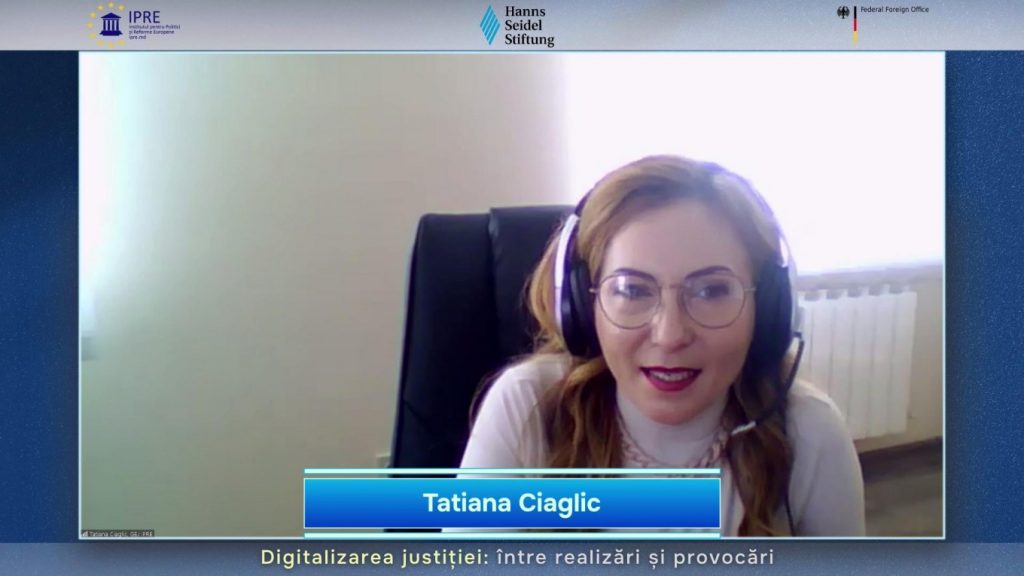
Tatiana Ciaglic, legal expert from the IPRE Group of Experts on Justice: “White Paper of Justice: “Recommendations for an independent and upright justice”, whose co-author I am, has indeed provided for several recommendations addressed to the public authorities responsible for the field of justice aimed at increasing the degree of digitalization of the process of judging cases, and it is very gratifying that the vast majority of these recommendations were reflected in the Strategy on ensuring the independence and integrity of the justice sector for the years 2021-2024, which is currently in the process of implementation. In order to accelerate the process of digitization of justice, it is necessary to ensure access through DDRI to several state electronic registers, or, at the moment, through this program it is possible to access only two registers – (i) the State Register of Population and (ii) the State Register of Legal Entities, however, it is very important to significantly expand this list, however, the possibility of this certainly exists. With regard to the e-File information system, it is important that it be developed and implemented from the citizen’s perspective, or, its final and primary purpose is to come to the benefit of the common man. E-file, it is thought of as a sub-system within the ICM, which will essentially be an additional way of access for the citizen to justice, but it should also contain the possibility for the citizen to apply to the mediation procedure, in case he expresses his wish in this regard.”
For more details, you can watch the video of the event on the privesc.eu here.
The event was organized by trainees participating in the #StagiuIPRE2022 program within the IPRE project “Change starts with you! – #BetheChange: Young people for the Europeanization of the Republic of Moldova”, implemented in cooperation with the Hanns Seidel Foundation in the Republic of Moldova and with the financial support of the Federal Ministry of Foreign Affairs of Germany.

